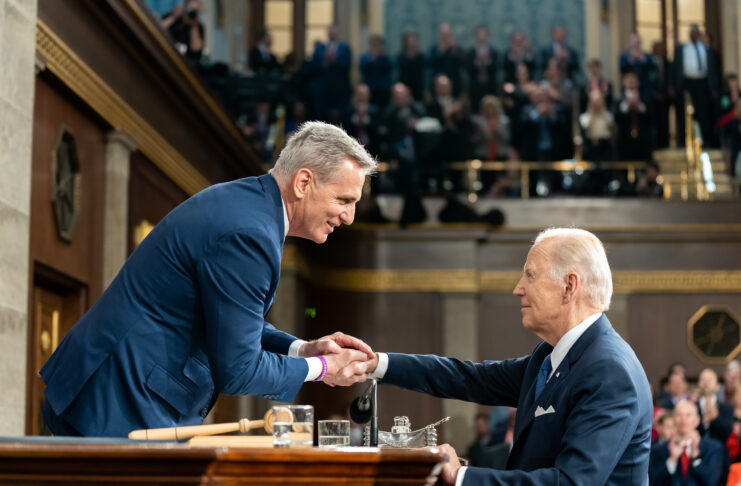Washington, D.C. – The operatives who design and execute strategy in American political campaigns are driven by the need to know why voters behave the way they do. What drives them to pick one candidate over another? Is their choice personality-driven or do issues matter? If it's the latter, what issues are they? And are they constant or do they change from election to election?
There are a lot of things the pollsters and practitioners of the political arts want to know about why people vote the way they do. Most of all, what keeps them up at night? What all-consuming fear arises in the quiet times when they are alone with their thoughts that leave them sleepless?
That, to put it bluntly, is what the consultant class believes goes into the “secret sauce” that helps people determine which party they're going to support and how they'll vote. That's the theory anyway, which is why the number of negative ads on the air increases as the election gets closer.
In real life, voters are a bit more sophisticated. They're not just motivated by fear, although it does play a part, as is evident from the way campaigns unfold. That's why the Democrats spend so much time and money in every election accusing the Republicans of having a plan to cut Social Security benefits. It doesn't matter if it's true (and it isn't, by the way). It's just a matter of making enough high-propensity voters over the age of 62 believe it's true enough to influence how they vote.
Unfortunately for many of the consultants and the candidates they advise, the American people are neither monolithic nor binary in their behavior, their attitudes or their fears. They are complex individuals who, in perfectly rational ways, can see the same thing very differently.
Pollsters David Winston and Myra Miller have been exploring this issue as it applies to the debt ceiling. What they've found in their latest surveys is particularly instructive.
“The debt limit standoff between the White House and Republicans is not only over philosophies on government spending but also about different views on the most serious threats to the country,” the pair wrote in the most recent edition of The Winston Group's Discussion Points memo.
That is the issue, on the button. Republicans tend to think the mounting debt, fueled by reckless spending demands coming from Congress and the White House, has pushed the nation to the brink of insolvency and is, therefore, the most serious issue before us.
Democrats, on the other hand, believe it to be what the president and others have called “the existential threat of climate change” which, if left unaddressed, could bring disaster to the nation of an entirely different kind. They, therefore, support the spending, particularly that which was part of the Inflation Reduction Act which has been described by critics and supporters alike as “the most significant climate legislation in US history.”
Both issues are relevant to the debate, Winston and Miller wrote after matching them up head-to-head in a survey at the beginning of March.
“While both issues may be important,” they wrote, “more than half the country (57%) identified the national debt as the more serious threat over climate change at 38%, but with significant differences by party.”
How that breaks down should come as no surprise. Republicans “overwhelmingly prioritized” the debt, 85% to 13% as did independents but by a smaller margin of 50-42. Democrats, meanwhile, said “climate change” but by just 61 to 35, “with some distinctions among moderates and liberals.”
“By more than 3:1, liberal Democrats identified climate change (70%) as a more serious threat than the debt (27%), with moderate Democrats still prioritizing climate change but at a closer 12-point margin (41-53 debt-climate),” the pollsters wrote.
The split is equally interesting by age. “Generation X (60-36) and Baby Boomers (63-32) prioritized the debt by large margins, with millennial/Gen Z — the group most likely to experience long-term consequences of both climate change and the debt — being split (48-47) on which one is the more serious threat,” Winston and Miller explained.
Returning to where we started, it appears that more people are staying up late worrying about debt than climate change, that is if they're staying up at all. Both President Joe Biden and House Speaker Kevin McCarthy presume they are, which is why they've each dug in so deep. The GOP proposal released Wednesday appears modest, even reasonable by current standards. The Democrats have responded to it, however, as though it were a plan for ending the world. That reflects not just where they are as politicians and ideologues but where they think their constituent base is as well.
The opinions expressed in this article are those of the author and do not necessarily reflect the positions of American Liberty News.
READ NEXT: America's Mideast Allies Target Dissidents On American Soil


